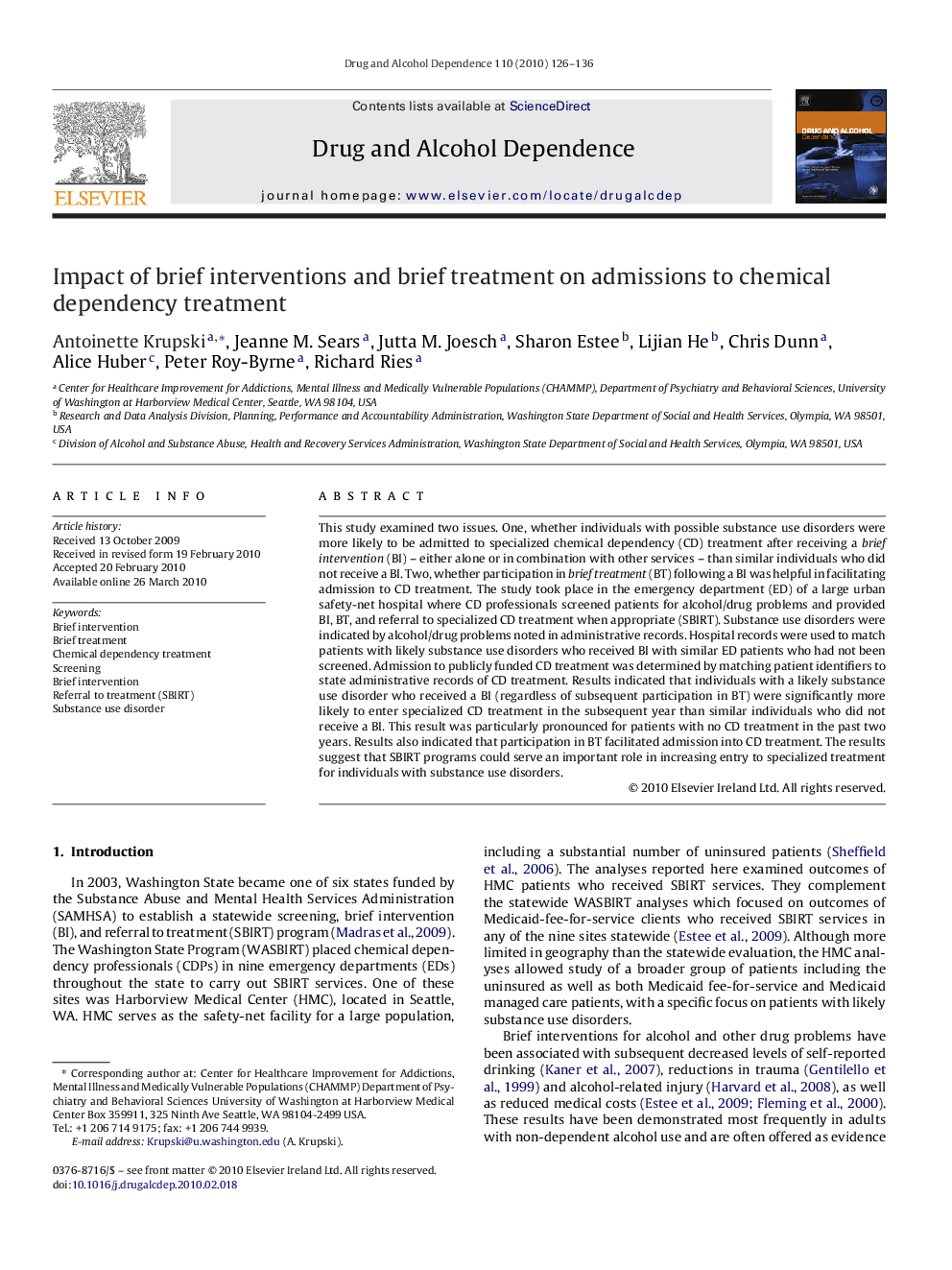| Article ID | Journal | Published Year | Pages | File Type |
|---|---|---|---|---|
| 1070692 | Drug and Alcohol Dependence | 2010 | 11 Pages |
This study examined two issues. One, whether individuals with possible substance use disorders were more likely to be admitted to specialized chemical dependency (CD) treatment after receiving a brief intervention (BI) – either alone or in combination with other services – than similar individuals who did not receive a BI. Two, whether participation in brief treatment (BT) following a BI was helpful in facilitating admission to CD treatment. The study took place in the emergency department (ED) of a large urban safety-net hospital where CD professionals screened patients for alcohol/drug problems and provided BI, BT, and referral to specialized CD treatment when appropriate (SBIRT). Substance use disorders were indicated by alcohol/drug problems noted in administrative records. Hospital records were used to match patients with likely substance use disorders who received BI with similar ED patients who had not been screened. Admission to publicly funded CD treatment was determined by matching patient identifiers to state administrative records of CD treatment. Results indicated that individuals with a likely substance use disorder who received a BI (regardless of subsequent participation in BT) were significantly more likely to enter specialized CD treatment in the subsequent year than similar individuals who did not receive a BI. This result was particularly pronounced for patients with no CD treatment in the past two years. Results also indicated that participation in BT facilitated admission into CD treatment. The results suggest that SBIRT programs could serve an important role in increasing entry to specialized treatment for individuals with substance use disorders.
